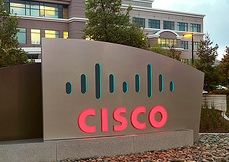Nearly four in five likely U.S. voters believe it is important for technologies such as video calling to work together to help create jobs, promote innovation and deliver critical benefits in remote health care, education, business and other services, according to a newly-released survey. In fact, at least two thirds of Democrats and Republicans alike believe that more jobs will result from open video calling for instance, dialing a certain number to reach someone on any video system than if consumers and businesses are forced to rely on closed systems that can only talk to one another.

In a survey of more than 1,000 likely U.S. voters conducted on behalf of Cisco by Purple Insights, a division of Purple Strategies, 89 percent felt that the ability of two devices or programs made by different companies to communicate with one another known as interoperability was personally important to them, with almost half indicating such communication is extremely important to their use of devices at home or at work. Of respondents, 77 percent want video calling to be as easy as making a phone call is today.
The use of video by consumers, government and business is growing at a staggering rate. According to the Cisco Visual Networking Index, in just three years, one million video minutes (the equivalent of 674 days) will traverse the Internet every second. Use of video calling services is also increasing. For instance, on February 27th of this year, Skype reported that 34 million people were using the service at one time.
As video collaboration becomes increasingly mainstream, multiple vendors will have to work together to enable global scale and broad customer choice like consumers have today with phone, Internet and email. Currently, not all video calling technologies work together. Cisco's TelePresence and many other video communications products connect using the same standards-based "language." Unfortunately, one of the most popular consumer video calling services, Microsoft's Skype, relies on proprietary standards, which hinders Skype's more than 600 million users from calling non-Skype users, and prevents businesses from reaching them via systems that offer services such as health care and job training by remote video.
Cisco is a strong advocate of video communications using underlying technologies based on open standards agreed upon by credible standards bodies open to all interested industry participants, a framework that has been used successfully to create the standards that underlie the Internet, email and voice calling. With this approach, anyone who adopts an open standard is assured of basic interoperability that is not controlled by any single commercial vendor.
87 percent of respondents want companies to agree to a common standard for video calling so that programs will work together.77 percent believe that video calling should be as easy as making a phone call while Two-thirds, regardless of party affiliation, believe more jobs and innovation will be created with open and interoperable video.
83 percent (67 percent strongly) want Skype to be interoperable with other video technologies. 63 percent agree that innovation is how companies grow, how new companies start and how prices are kept down. If one company, such as Skype, controls a majority of the video calling market and does not make its product interoperable, respondents believe that will cut off innovation, slowing the growth of technology jobs and increasing prices.
"Video is the most engaging medium and its use in every aspect of our lives is growing exponentially. Consumers and business users alike today are demanding that video communications solutions work together and that making a video call be as seamless and easy as making a phone call. This is about freedom of choice, and we the technology industry must rally around open standards, as we did so effectively with telephone service, the Internet and email. Only with a truly open video community will we fully reap the economic and social benefits of this transformational technology", said Marthin De Beer, Senior Vice President, Cisco Video & Collaboration Group.









0 comments:
Post a Comment